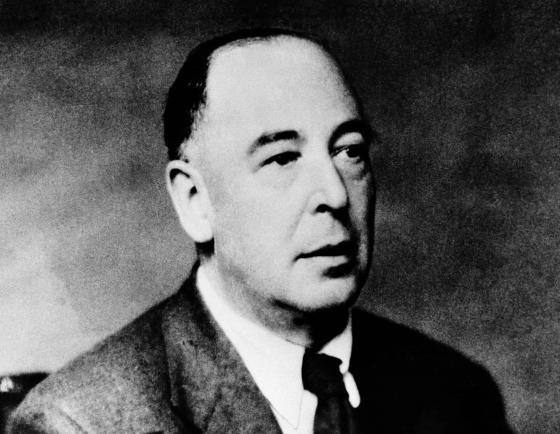
Famous author and inspirational figure C.S. Lewis was, at one point in his life, a secret government agent.
"This is the part where you imagine the highly esteemed intellectual swinging from rusty pipes and punching bad guys all while keeping his tuxedo unwrinkled and fabulous," Relevant wrote. "But, Lewis' service to MI6 was much more in tune with the talents that he was best known for."
Specifically, the author of the Chronicles of Narnia worked for the British Secret Intelligence Service, which asked him to deliver a radio broadcast called "The Norse Spirit in English Literature" to people in Iceland as a way to inspire good will among the Icelandic population, reported Harry Lee Poe, who wrote about this discovery in a piece for Christianity Today.
Poe explained that Lewis' goal was to keep good faith among Iceland's people so that Britain could invade the country to search for German naval vessels during World War II. He did this by talking highly of Iceland's culture, language and spiritual beliefs, Poe reported.
"Lewis provided a touchstone between the Norse people and the English, which Lewis made clear in his first recorded statement," Poe wrote. "He said that he did not know why he had been asked to address the people of Iceland, but that he agreed to do it in order to repay a great debt. He explained that his imaginative life had been awakened by Norse mythology when he was 14. He went on to explain how his love of Norse mythology only deepened when he began to learn the Icelandic language at Oxford."
Poe first discovered this information on eBay, where he found a recording of a Lewis lecture in which the author unveiled parts of the recordings, Christianity Today reported.
This discovery that Lewis was a secret agent raises some questions about Lewis' actions later in life. As Poe explained, Lewis never wrote about Norse mythology (which tells the stories of characters like Odin, Loki and Thor), despite its heavy influence on him.
This is why some feel that Lewis' radio broadcast was more propaganda than it was an honest talk about his personal beliefs about Iceland's culture and Norse mythology, Poe wrote.
"British intelligence was aware of the quality of Oxbridge's intellectuals - and Lewis had been a serving soldier, enlisting in 1917 and being wounded during the Battle of Arras. There could be no doubts about his patriotism or his capability," Christian Today reported on Poe's analysis.
But others say that Norse mythology did make its way into Lewis' major works, which shows that he was genuinely appealing to the Icelandic crowd. National Geographic's Stefan Lovgren wrote that Lewis' famous Chronicles of Narnia series featured many traditions from a variety of faiths, including Norse mythology.
"The world of Narnia is populated mainly by talking animals. But it also includes mythological creatures and figures, such as fauns, nymphs, dryads, Bacchus, and Silenus from the Greek and Roman traditions, and dwarfs and giants from Norse mythology," Lovgren reported.
In fact, Lewis, much like his colleague J.R.R. Tolkien, relied heavily on Norse mythology to create the fantastical world seen in Narnia, Lovgren wrote.
"Lewis especially loved Norse and Icelandic myths, which he fell in love with as a child through the Longfellow adaptations of Norse tales," Lovgren wrote.

